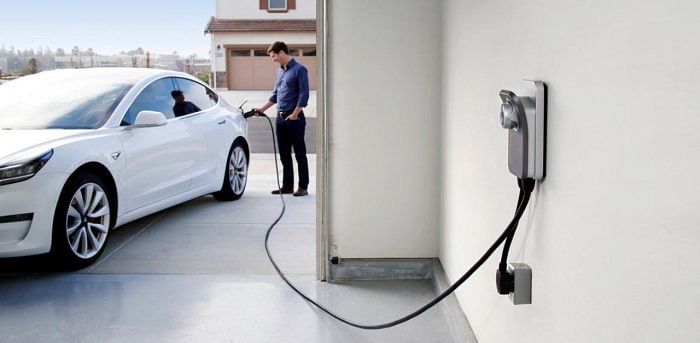
Range anxiety, that fear of running out of battery, is every electric vehicle user’s worst nightmare. So, why not address this by letting every roadside shop morph into a charging station?
This is exactly what Bengaluru-based startup Charzer had in mind when it introduced the ‘Kirana Charzer’.
How does this work? “Kirana Charzer is a compact, zero-maintenance and Internet of Things (IoT)-enabled charging station that can be installed by small shops and individuals enabling them to earn an additional income,” explains the startup founders.
The station is compatible with all two-, three- and four-wheeled electric vehicles. “It works with a basic single-phase electricity connection and can be installed without upgrading the existing grid connection.”
EV users will just have to download the Charzer mobile app, locate the nearest charger, select the preferred station, book a slot and make the payment. The shopkeeper/host can set the pricing on the app. A daily report of power consumed, bookings and earnings are sent to him/her. A ‘Withdraw Money’ feature lets the host transfer the earnings directly to the bank account.
What about the cost and revenue model? “Kirana owners and other small business owners can install a Kirana Charzer for Rs 10,000. Eighty per cent of the revenue from charging goes to the owners, while the company gets 20%.”
Launched in February 2020 at MOVE 2020, London, the Kirana Charzer has been installed at five locations till date in Bengaluru and Thiruvananthapuram.
A startup spokesperson informs that since the launch, over 2,000 pre orders have been received from more than 60 cities and towns across India.
Charzer was founded by second-time entrepreneurs Dheeraj Reddy, Sameer Ranjan Jaiswal and Yugraj Shukla. Before this venture, the team had launched FAE Bikes, an EV scooter rental and fleet management startup.
The Society of Manufacturers of Electric Vehicles has indicated in a report that the sale of EVs in India increased by 20% during 2019-20. However, lack of a public charging infrastructure has been an obstacle in the sector’s accelerated growth and slow adoption of EVs as a mainstream transportation option.